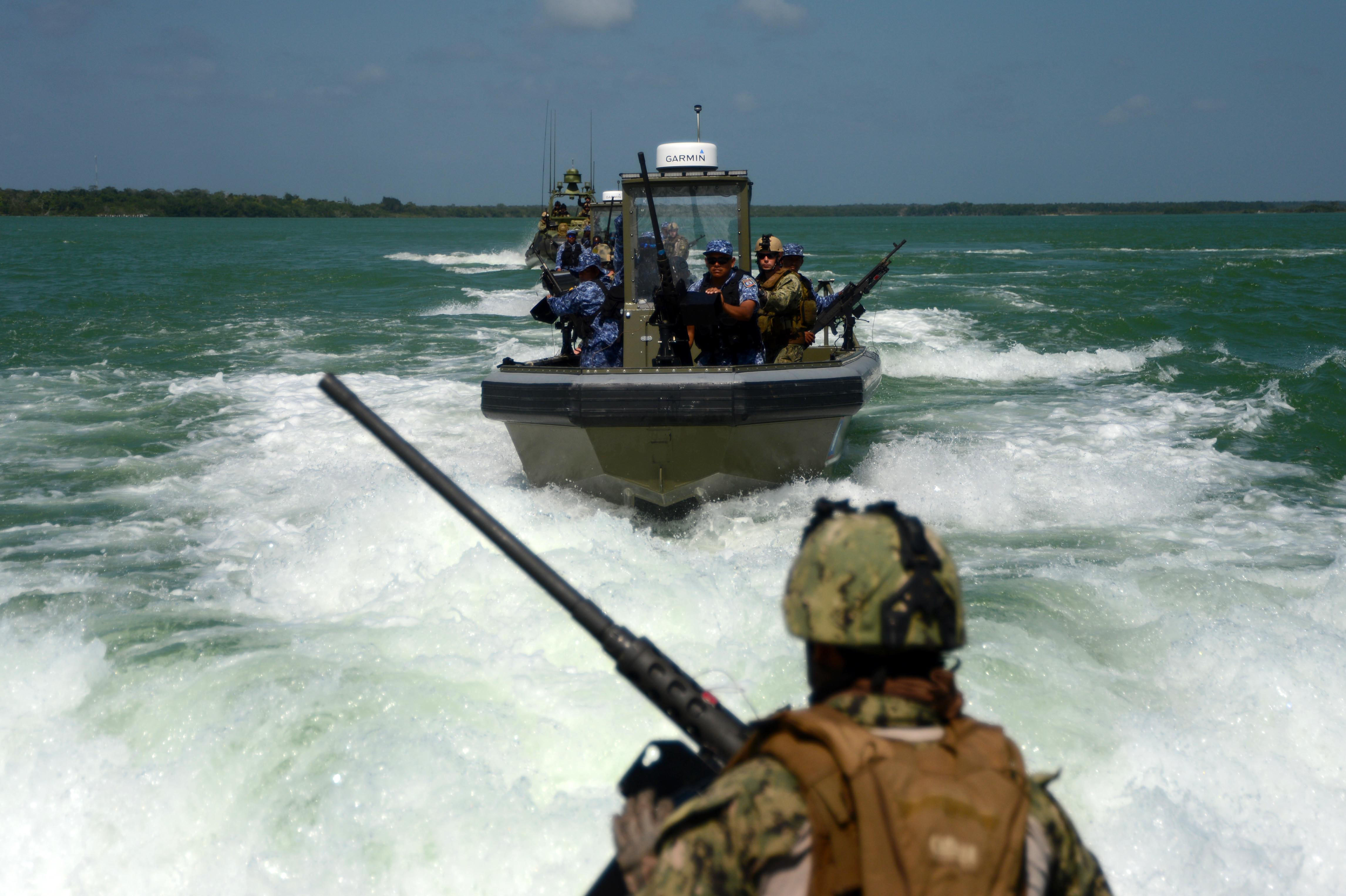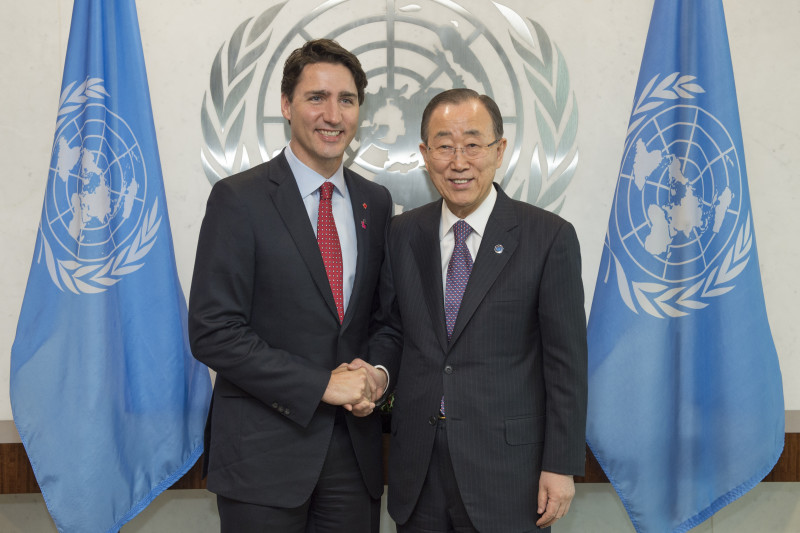Non-state actors have long played a role in global maritime security. From the piratical exploits of Blackbeard, Jacques de Sores, Zheng Yi, and others to the more recent threat of sea-based terrorism, as reflected in al-Qaeda’s October 2000 attack on the USS Cole, this role presented a limited but serious security threat, notwithstanding the commercial role performed by corporate entities concerned with shipping, fishing, and offshore drilling. But, since the turn of the 21st century, the position of non-state actors in global maritime security has evolved rapidly and in such a way that it is likely to disrupt the international legal order that governs maritime affairs.
The most troubling development is the advent of hybrid warfare and the so-called “little blue men”. Similar to the “little green men”, elite Russian troops portraying themselves as local militia during Russia’s occupation and annexation of Crimea in 2014, there have been similar efforts to outsource provocations and enforcement activities to militias, contributing toward escalated tensions in the South China Sea.
The militias employed by China in support of its territorial claims in the region receive funding and equipment from the Chinese authorities, receive training from the People’s Liberation Army Navy (PLAN) and the Chinese Coast Guard, but are portrayed by the Chinese authorities as merely “patriotic fishermen” from Hainan acting on their own accord by ramming vessels from other countries in the region, illegally fishing in disputed waters, and otherwise undermining regional security. One such example is Sanya Fugang Fisheries Co., Ltd., which is nominally a fishing company, but whose trawlers have frequently harassed vessels from the United States, the Philippines, and Vietnam throughout the South China Sea region since that militia’s establishment in 2001.
Authentic vigilantism also presents a threat to the international norms that were first codified in the Geneva Conventions on the Law of the Sea in 1958. The Sea Shepherd Conservation Society operates its own fleet of vessels, which have frequently rammed and attempted to capsize fishing vessels engaging in controversial or illegal operations, such as drift-netting, seal hunting, and whaling. These activities have prompted the Government of Japan and the International Convention for the Regulation of Whaling (ICRW) to label the Sea Shepherds as “eco-terrorists” or “pirates”. More recently, the Sea Shepherds obtained a Damen 5009 Fast Crew Supplier, to be named Ocean Warrior, which is normally employed as a Coast Guard vessel by Trinidad and Tobago as well as other Caribbean states. With their hulls splashed in naval camouflage, Sea Shepherd vessels are increasingly militaristic in both their appearance and their operations.
Private military contractors (PMCs), which have been enlisted by both governments and maritime shipping companies to combat piracy in strategic waterways like the Gulf of Guinea, the Gulf of Aden, and the Strait of Malacca have also been accused of playing a destabilizing role in regions where they operate. Much like maritime militias and vigilantes, this is in large part due to the lack of accountability regarding how PMCs work. This legal ambiguity has prompted a pushback from some governments, such as the October 2013 arrest of AdvanFort International guards by Indian authorities for allegedly entering Indian waters without a permit while carrying large quantities of arms, as well as for illegally obtaining subsidized fuel.
The rise of non-state actors in international maritime affairs carries the same risks presented by hybrid warfare elsewhere, as reflected in the aforementioned invasion of Crimea and the use of drones in extrajudicial killings. Non-state actors offer plausible deniability for the states who support their activities and so, no longer constrained by public opinion or multilateralism, countries would be less accountable for their actions. Non-state actors legitimately acting on their own would nonetheless prompt suspicion and accusations by one state of another’s interference. Such a scenario would see the law of the seas replaced with a kind of Hobbesian anarchy – ‘the war of all against all’, where every other actor in the international system is to be distrusted and regarded as a potential security threat.
To counter this, states should seek greater cooperation in the enforcement of international maritime law. Following the American Civil War, with tensions running high between the United States and Britain, the seapower theorist, Alfred Thayer Mahan, proposed an alliance of those two great powers to police international waters and counter the threat of piracy. Such a joint effort was envisioned as a means of building mutual trust between the Royal Navy and the United States Navy (USN). As non-state actors sow distrust in disputed waters like the South China Sea, perhaps the surest way of averting conflict is for frequent joint patrols to be launched. Recently launched joint patrols by the USN and the Philippine Navy are a first step. Including PLAN in the future will be challenging but essential.
Photo: Belizean Coast Guard working with the United States Navy, Belize’s open water ways and long barrier reef make it susceptible to drug traffickers (2013, by Staff Sgt. Ashley Hyatt (U.S. Air Force) via Wikimedia Commons. Licensed under CC BY 2.0.
Disclaimer: Any views or opinions expressed in articles are solely those of the authors and do not necessarily represent the views of the NATO Association of Canada.




